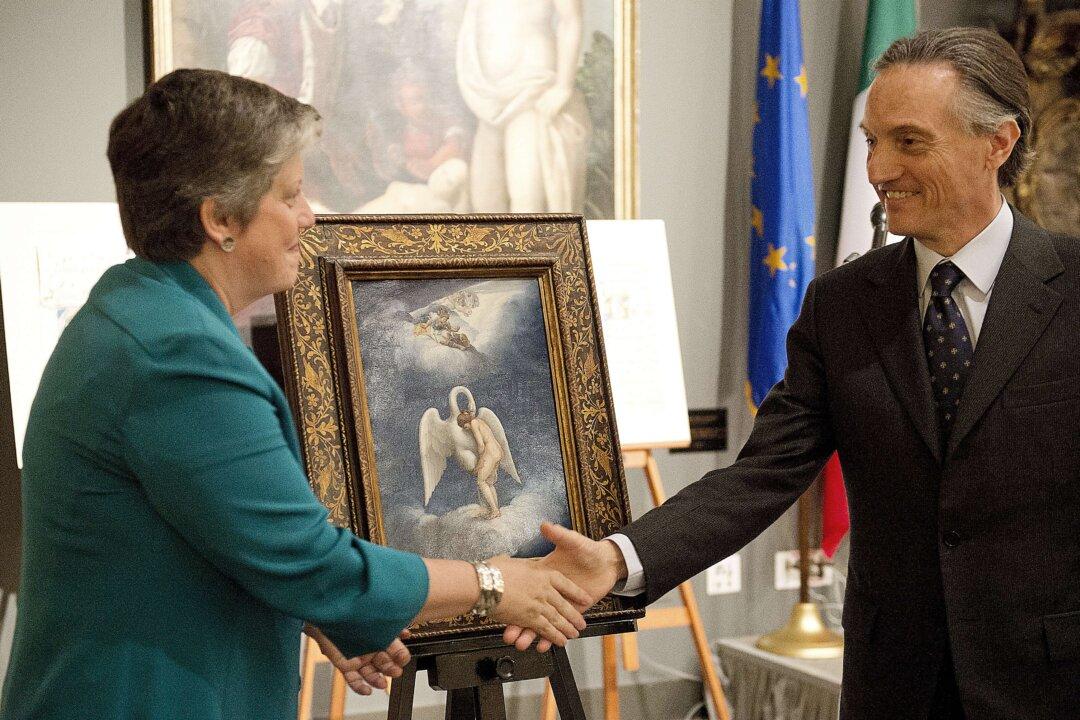The Italian government aims to crack down on the theft and trafficking of historical artifacts as it seeks to fulfill its campaign promise of bolstering national identity.
Culture Minister Alberto Bonisoli said the government will soon ratify the Nicosia convention, an international agreement that’s concerned with combating the illicit trafficking and destruction of cultural artifacts. Bonisoli made the announcement at an event in Washington to celebrate the return to Italy of three ancient treasures.





